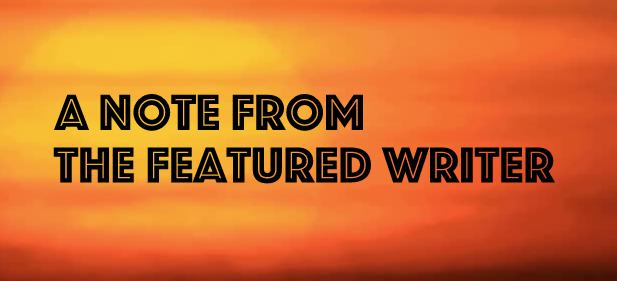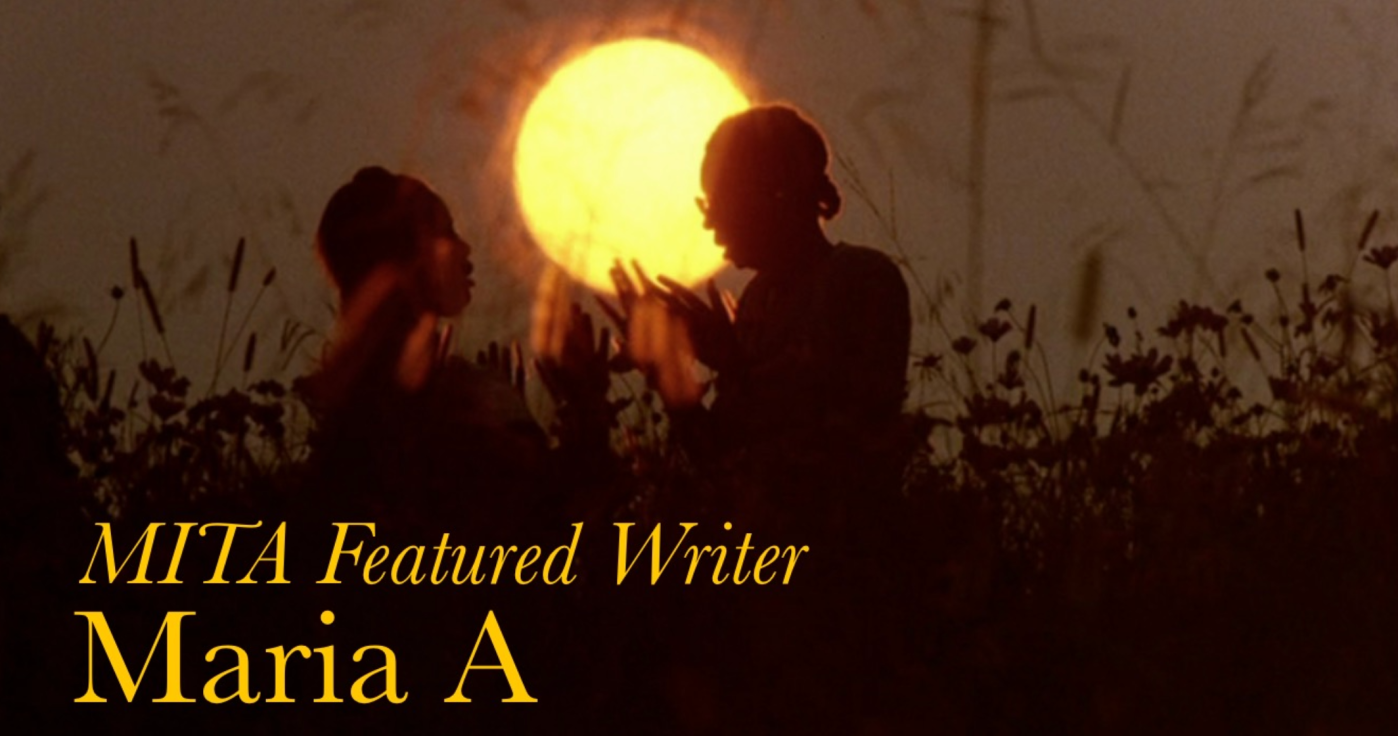Piece 1:
If I could travel back in time:
Well…if I could travel back in time, there’s too many things I’d like to do, too many places I’d like to go, too many people I’d like to meet. My dreams go big and avoid the possibility of going back to a time I existed in; are my heart and mind protecting me?
Mexico City, Mexico, 1690: I’d do a prayer with sapphic proto-feminist nun Sor Juana Inés de la Cruz, and maybe we could even exchange poetry.
Paris, France, 1794: I’d offer comfort and aid to a depressed, lonely, newcomer to motherhood Mary Wollstonecraft, so maybe she could get some sleep and realize pursuing Imlay was a lost cause.
Amherst, Massachusetts, 1858: I’d help Emily Dickinson bind her fascicles (…if she’d let me). Ohhh 20th century, we’re getting closer, don’t panic!
Broadway, NYC, 1966: I’d do anything to get front row tickets of Bea Arthur as Vera and Angela Lansbury as Mame, performing Bosom Buddies, feeling clever as I hear the Gertude Stein and Alice Tolklas line sung.
Japan, 1974: I’d attend all-female theatre Takarazuka’s first performance of Rose of Versailles, asking some of the actresses to borrow their fabulous sparkly suits. They’d feel alright with me wearing a tie.
1980s/90s : If I listed every concert I’d like to go to during these decades we’d be here for several pages longer…I would, however, go to every The Cure tour I could, teasing my hair and talking politics with the trad-goths.
Medellín, Colombia, 2004: I’m born. And suddenly…I don’t want to go back in time anymore.
I could meet my father, the eccentric my mother sees live on in my spirit with disdain. Maybe he could also hear the voices of the wind I understood and felt crazy for hearing. Voices of the wind. In the same language Anzaldua heard them, the “exhalation blowing in through the slits in the door” (36). Did everyone else not care or just not hear?
GOT IT!! Wherever the hell Anzaldua was in 1987. Take me there so I can cry to her in my mother tongue and unapologetic lesbian existence, since I’ve only ever been allowed to cry in the fullness of one or the other. Gloria, join me on a trip to California somewhere in the 2010s, will you? Have I lost the voices of the wind as I’ve lost my native tongue in this country that has shamed my mother for her foreignness? Gloria, can you hear them? Help me understand where I’ve gone wrong.
Wait. The Woods behind the basketball court. Do you see that?? Where did everyone go?
Did you hear that? They say witches haunt the school bathroom. Brujas? They ride their broomsticks and terrorize any who enter. The baño, maestra? Let’s work on that. Bathroom. The bathroom? Go on.
“Institutionalized religion fears trafficking with the spirit world and stigmatizes it as witchcraft” (Anzaldua, 37).
Come Gloria, let’s see those witches in the school bathroom. I hope my heart and mind have not been disgraced to warp their language. The language you speak, the language they speak, is one I am fluent in, and that language is not Spanish. It is a language of ternura. One Gloria and I tell myself to not ignore, speak to the wind and she will speak back in the fullness of authenticity and not shame your inability to speak it back. It’s not your fault.
Piece 2:
Orchid, my Orpheus in practice,
You are a half-stringed lyre, made from the finest shell of my hardened heart
A heart hardened by your radiation, because sunblock is a myth under your sadistic gaze.
Your strings, made from my grief gutted by you, play an irresistable melody,
A melody of lyes, but still I shower in the mummified love, dangled by disappointment.
Your taunting tires me, and so I’m lying down, and getting up seems impossible
And you beat me down some more, ivory handles knock my teeth and sanity from their gums.
So I stay lyring down, your deceiving melody playing into a smile.
I ask, ‘What happened to Eurydice?’
You stop the needle on the record player, forcing your tune of lyes counter-clockwise into a frown.
And one string of my grief on your body snaps, welt of homesick resentment on your face
So the melody halts–
My Orpheus in practice, bittersweet Orchid, now I’m cupping your decomposing petals and hold your brown, wrinkling skin. I wonder if you see that you’re crying.
And I look at your desaturated sepals, dry with salt, understanding your zenith has waned.
I ask, ‘What happened to Eurydice?’
The last three strings of my grief tangle themselves around your heart, a bunched-up mess of love, I realize.
Can you untaint the abusively tempting melody of love your pain sings me?
My fingertips blister from desperately untangling severely bent strings
And so I reclaim my strings of grief, almost happy that they are rusty because of your tears
But as I look at you now, a no-stringed lyre, I see that you were made from the finest shell of your own hardened heart
A self-hardened heart, and so I look into your shell, asking once again, ‘What happened to Eurydice?’
Then, I hear– an impossible melody– one that is irresistible and coming from a tartan-lined lyre, tight-fitting and trew, and I finally see an unmummified Eurydice clockwise in your smile.
Piece 3:
Damning Doctor,
What’s my diagnosis?
My sickness is my love, a persistent desire–
This paradox of healing makes me believe it a myth.
Can you smell my headache, heavy with want?
Doctor, doctor!
What’s my diagnosis?
Is it what Robert Palmer said in ‘79– a “BCOLY?”
But, he wasn’t a lesbian, was he?
I don’t want to fall in love
Doctor, get me to the doctor!
What’s my diagnosis?
You say my kind of love is my diagnosis, not the cure.
The King of Rock and Roll said it in ‘61,
I can’t help falling in love
But is it only wrong before Leigh Crow styles her pompadour–
Is a greaser MINUS the dyke alright?
Patient K1886E:
Suffers from a meiosis of vulnerable, venereal desire
Her daughter cells are dykey in nature
How do you diagnose that?

Do not, for the love of Sappho, throw out your writing, ever. Lock it away in some bottle or chest, in a sealed letter, anything, but do not let it be murdered so that it’s quiet. Thinking of all of the writing that I’ve discarded makes my stomach hurt and my chest heavy, which is ironically also how I feel most times when I write. And I would call this an exorcism, a dispelling of sickness from my mind onto paper so that I can be saved, but that would be blasphemy. It’s more of a cloning process; a duplication of feeling to be put into words, a photograph that captures a moment of yourself. Let your writing be an album of memories; flip through and giggle at the silly faces you were making, reflect on your past reality. I’m working on saving my writing, an archive of my blood, of others who have seeped into my blood, so an enigmatic warmth of nostalgia is kept with me as I touch time. I am grateful to MITA for encouraging this preservation, the preservation of what has been infinitely told off and dismissed, black and blue with bruises of ignorance. Thank you, dear reader, for being a reciprocal ointment of solidarity.


The photo above is of Vita Sackville-West and Violet Keppel depicted in the miniseries Portrait of a Marriage (1990), one of my favorites. I am forever inspired by those before me.
I am Maria A. (they/them/she). I am a lesbian, born in Colombia and raised in the United States. I am a student in college for Environmental Studies and Global Gender & Sexuality Studies, currently being tempted to study Classics as well…
For a while, I was scared of “I am” statements. I would have rather not drawn attention to myself. But I’ve started saying I am, because I am so many things that so many other people are and have been, and I grow sad at how I stepped back from myself for so long. I find my heart in stories of the past and present; I love The Sewing Circle of old Hollywood, picking the very same wildflowers a smitten sapphic of the past did, listening to CDs of a butch cowgirl; stories that have been made into art, stories that exist in the roots of the earth, literally. I find myself everyday, everywhere, and with myself I find others who I take with me so I am never alone and they are never forgotten. I am.

Your reflections and narratives beautifully intertwine personal exploration with historical homage, creating a vivid tapestry of identities, emotions, and temporal connections. The way you seamlessly weave between your desires to engage with figures of the past, your introspections on identity, and your poignant poetry showcases a profound engagement with your sense of self and the wider world. Your courage in stating “I am” statements, reclaiming your identity, and expressing solidarity with those who have shaped your understanding of yourself is inspiring.
Your writing not only serves as a bridge between past and present but also as an invitation to others to explore their own identities and histories. It’s a reminder of the power of storytelling in understanding our place in the world and connecting with others across time and space.
As you continue to navigate your academic interests and personal journey, how do you see your exploration of the past influencing your future? How can these reflections and connections guide your contributions to Environmental Studies and Global Gender & Sexuality Studies, or perhaps even lead you into the Classics?
LikeLike